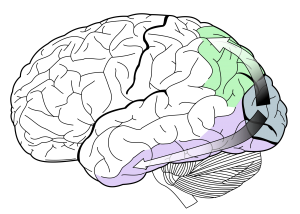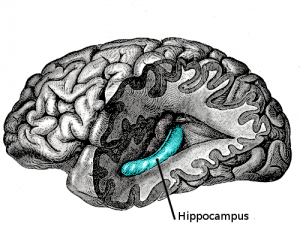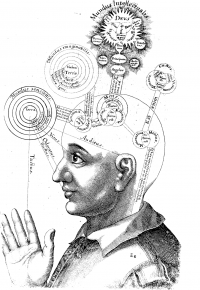Introduction
Brain & Cognition is a so called program group of the Psychology Department of the University of Amsterdam. The overall objective of this program is to obtain a better understanding of the nature of human cognitive functions and their neural bases. Our research can be roughly divided into three major
themes: Perception and Action, Memory and Language and Consciousness. The program has a strong emphasis on theory development and on the explanation of cognitive phenomena using neurobiological principles.
Perception and Action
From a biological point of view, the human brain may be viewed as being designed primarily
to process external information and to transform this information into behaviour in a way that is most meaningful for the individual. In this sense the brain may be viewed as a reflex arc, albeit a very complex one. The goal of the research within this subprogram is to unravel these processes and to reduce them to their most elementary components, aiming to link these components to neural mechanisms. In order to achieve this, a variety of methods is used, psychophysical and behavioural methods (response speed and accuracy), the measurement of neural activity (single-unit recording, EEG, MEG and fMRI), the registration of (autonomic) physiological parameters (heart rate, hormonal secretion and GSR), the study of patients or otherwise abnormal groups, and intervention studies using psychoactive drugs or TMS.
Memory
Memory is a central aspect of human and animal cognition, enabling flexibility and adaptability based on past experience. This subprogram has a focus on the processes involved in the retrieval of information from memory and how this is influenced by a variety of factors including context, previously activated information, and the mental and affective state of the individual. Such retrieval processes lie at the heart of many cognitive functions, not just the recall of past events but also the retrieval of lexical and linguistic information in the understanding of language. This subprogram has a strong emphasis on formal (computational) modelling of human memory. Quantitative and neural network models are used to determine the explanatory adequacy of specific assumptions regarding memory structures and their interrelations. These models not only try to explain memory processes in normal adults but also specific phenomena observed in amnesia patients. This theoretically oriented research is accompanied by experimental work in normal and patient populations. Finally, we also explore the processes that play a role in the storage and retrieval of information in more complex tasks such as the processing of sentences and stories, faces and emotional stimuli.
Consciousness
A fundamental and not very well understood aspect of human cognition is that many cognitive processes
are accompanied by specific phenomenal experiences. We are aware of some of the incoming information but not of others although in both cases there can be seen an effect on our actions or on our memory. In addition, consciousness may have a controlling influence on cognition. Consciousness may also be defined as a state, in its most extreme form as the difference between sleeping and waking but also when we are awake we may be in different states of alertness, and these states affect our capacity for information processing. A major topic in this subprogram is the difference between conscious and nonconscious information processing, in particular in visual perception and emotion, and the neural substrate of this difference. In addition, it is investigated whether different sleep stages, and more generally biorhythmic phenomena, and (possibly induced) fluctuations of arousal affect information processing.